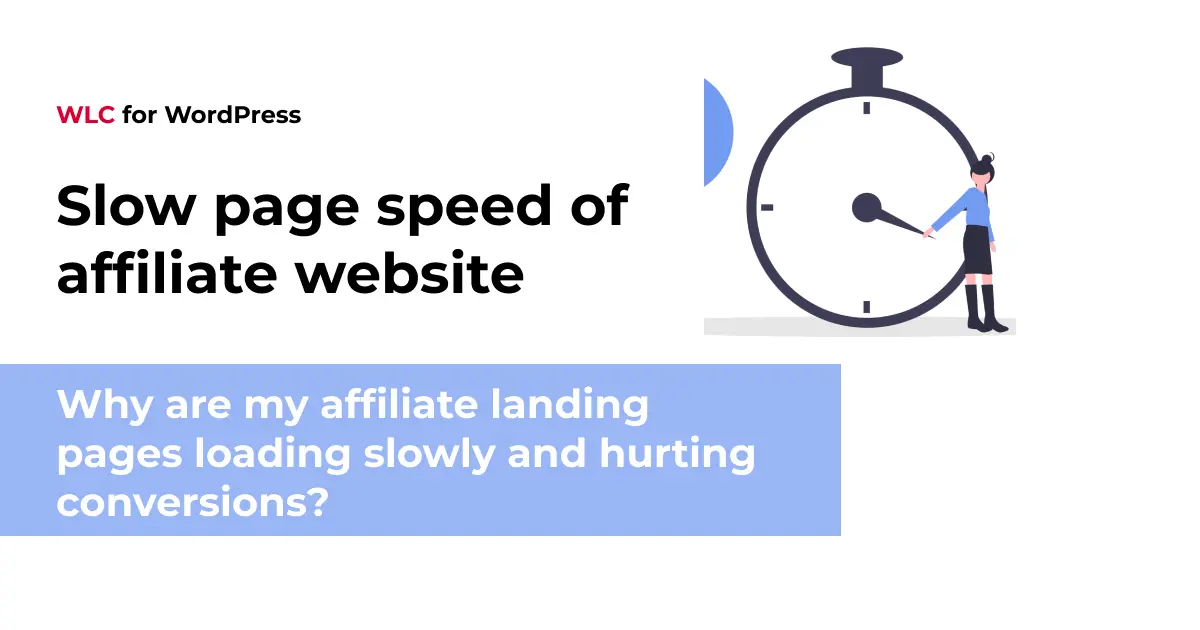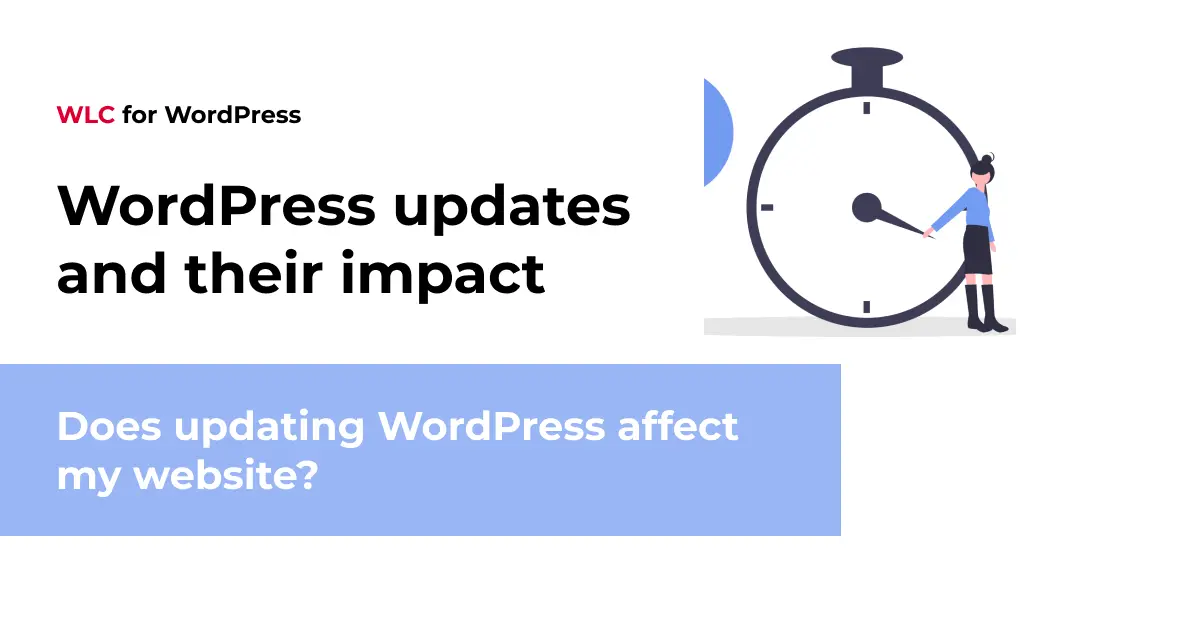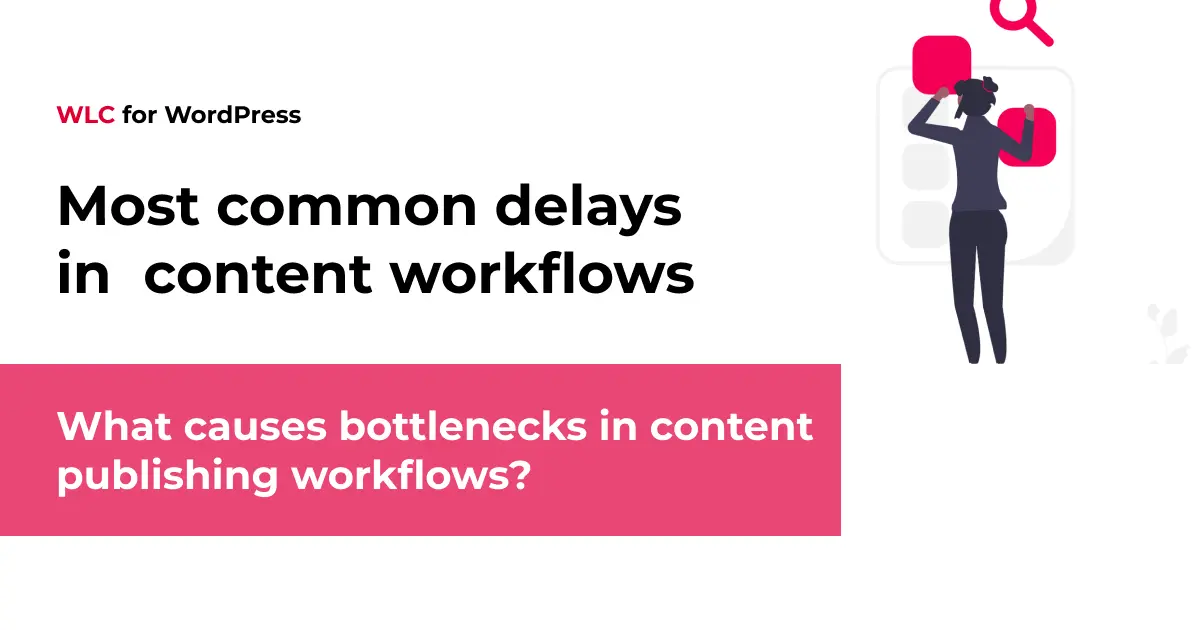Category: WordPress
Why are my affiliate landing pages loading slowly and hurting conversions?

Slow-loading affiliate landing pages kill conversions before visitors even see your offers. The main culprits include oversized images, poor hosting, excessive plugins, and unoptimised databases that create bottlenecks. Website performance directly impacts your affiliate marketing success through bounce rates and conversion drops. Understanding these issues helps you identify solutions that boost both page speed and revenue.
What actually causes affiliate landing pages to load slowly?
Heavy images, inadequate hosting, and bloated code are the primary reasons affiliate landing pages crawl instead of sprint. These technical issues compound to create frustrating user experiences that drive potential customers away before they engage with your content.
Oversized images represent the biggest performance killer for most affiliate sites. High-resolution photos and graphics that haven’t been compressed or optimised for web delivery can easily consume several megabytes of bandwidth. When you multiply this across multiple images on a single landing page, loading times balloon dramatically.
Poor hosting infrastructure creates another significant bottleneck. Budget shared hosting plans often struggle under traffic loads, especially during peak periods. These servers lack the processing power and memory allocation needed to handle database queries efficiently, particularly when multiple users access your affiliate landing pages simultaneously.
Excessive plugins and third-party scripts add layers of complexity that slow everything down. Each tracking pixel, social media widget, and analytics tool requires additional server requests. While these tools provide valuable data for affiliate marketing, too many create a cascade of loading delays.
Unoptimised databases become increasingly problematic as your affiliate site grows. When product information, bonus details, and operator data aren’t properly indexed or structured, every page load triggers slow database queries that keep visitors waiting.
How does slow page speed directly impact your affiliate conversions?
Every additional second of loading time increases bounce rates and reduces conversions across your affiliate funnel. Users abandon slow pages before seeing your carefully crafted offers, directly impacting your commission potential and overall affiliate marketing success.
The relationship between page speed and user behaviour is stark. When affiliate landing pages take longer than three seconds to load, bounce rates increase dramatically. Visitors simply won’t wait around to see what bonuses or offers you’re promoting, regardless of how compelling they might be.
Mobile users are particularly sensitive to loading delays. Since many affiliate traffic sources deliver primarily mobile visitors, slow page speed hits your conversions especially hard. Mobile connections often have less bandwidth, making every optimisation more important for maintaining engagement.
The affiliate funnel suffers at multiple stages when pages load slowly. Initial landing page delays prevent users from entering your conversion process. Slow comparison pages frustrate users researching different operators. Even quick bonus claim pages lose effectiveness when loading times create friction in the final conversion step.
Search engines also factor page speed into rankings, creating a compound problem. Slow affiliate landing pages rank lower in search results, reducing organic traffic while simultaneously converting poorly when visitors do arrive. This double impact significantly reduces your affiliate marketing effectiveness.
What are core web vitals and why do they matter for affiliate sites?
Core Web Vitals are Google’s specific metrics measuring user experience: Largest Contentful Paint (LCP), First Input Delay (FID), and Cumulative Layout Shift (CLS). These metrics directly impact both search rankings and user satisfaction on affiliate landing pages, making them vital for affiliate marketing success.
Largest Contentful Paint (LCP) measures how quickly the main content loads on your affiliate pages. For optimal performance, LCP should occur within 2.5 seconds. This metric is particularly important for affiliate sites because it determines how quickly visitors see your primary offers and calls-to-action.
First Input Delay (FID) tracks how responsive your pages are to user interactions. When someone clicks a bonus link or tries to navigate your affiliate content, FID measures the delay before the page responds. Poor FID scores frustrate users and reduce conversion rates across your affiliate funnel.
Cumulative Layout Shift (CLS) measures visual stability as pages load. If elements move around unexpectedly, users might accidentally click the wrong links or lose their place while reading your content. For affiliate pages with multiple offers and comparison tables, layout stability is particularly important for maintaining user trust.
Google uses these Core Web Vitals as ranking factors, meaning poor scores can reduce your organic visibility. Since many affiliate marketers rely on search traffic, optimising these metrics becomes important for both user experience and search engine optimisation.
How can you diagnose what’s slowing down your affiliate pages?
Google PageSpeed Insights provides the most comprehensive analysis of your affiliate page performance, showing both Core Web Vitals scores and specific improvement recommendations. Combined with GTmetrix and browser developer tools, you can identify exact bottlenecks affecting your conversion rates.
Start with Google PageSpeed Insights by entering your affiliate landing page URL. The tool analyses both mobile and desktop performance, providing separate scores and recommendations for each. Pay particular attention to the Core Web Vitals section, as these metrics directly impact both search rankings and user experience.
GTmetrix offers more detailed technical analysis, including waterfall charts that show exactly which elements load slowly. This tool helps identify specific images, scripts, or database queries that create bottlenecks. The waterfall view is particularly useful for affiliate sites with multiple tracking pixels and third-party integrations.
Browser developer tools provide real-time insights while you navigate your affiliate pages. Open the Network tab in Chrome or Firefox to see loading times for individual page elements. This approach helps you understand how your pages perform under different conditions and connection speeds.
Focus on the largest performance impacts when prioritising fixes. A single unoptimised image might cause more delays than multiple smaller issues combined. Look for patterns across different affiliate landing pages to identify systemic problems that affect your entire site’s performance.
What are the most effective ways to speed up affiliate landing pages?
Image optimisation, quality hosting, and caching strategies provide the biggest performance improvements for affiliate sites. These solutions address the root causes of slow loading times while maintaining the visual appeal and functionality needed for effective affiliate marketing.
Image optimisation delivers immediate results with minimal effort. Compress all photos and graphics using tools that maintain visual quality while reducing file sizes. Convert images to modern formats like WebP when possible, and implement responsive web design that serves appropriate image sizes for different devices.
Upgrading to performance-focused hosting makes a substantial difference for affiliate sites. Look for providers offering SSD storage, adequate RAM allocation, and content delivery networks (CDNs). Quality hosting becomes particularly important as your affiliate traffic grows and you add more landing pages.
Caching strategies reduce server load while speeding up repeat visits. Implement browser caching for static elements like images and stylesheets. Server-side caching can dramatically improve database query performance, which is particularly beneficial for affiliate sites with frequently updated bonus information and operator details.
Database optimisation becomes increasingly important as your affiliate content library grows. Regular maintenance, proper indexing, and efficient query structures ensure that product comparisons and bonus information load quickly. Consider centralising frequently accessed data to reduce redundant database calls across multiple pages.
Code cleanup and plugin audits help eliminate unnecessary bloat. Remove unused plugins, optimise CSS and JavaScript delivery, and minimise third-party scripts. While tracking and analytics tools are important for affiliate marketing, each addition should be evaluated against its performance impact.
When affiliate landing pages load slowly, every second costs you conversions and commissions. The technical factors behind poor performance—from oversized images to inadequate hosting—have straightforward solutions that dramatically improve user experience. Understanding website development costs and working with experienced developers helps you implement these optimisations effectively, ensuring your pages load quickly even under heavy traffic loads.






